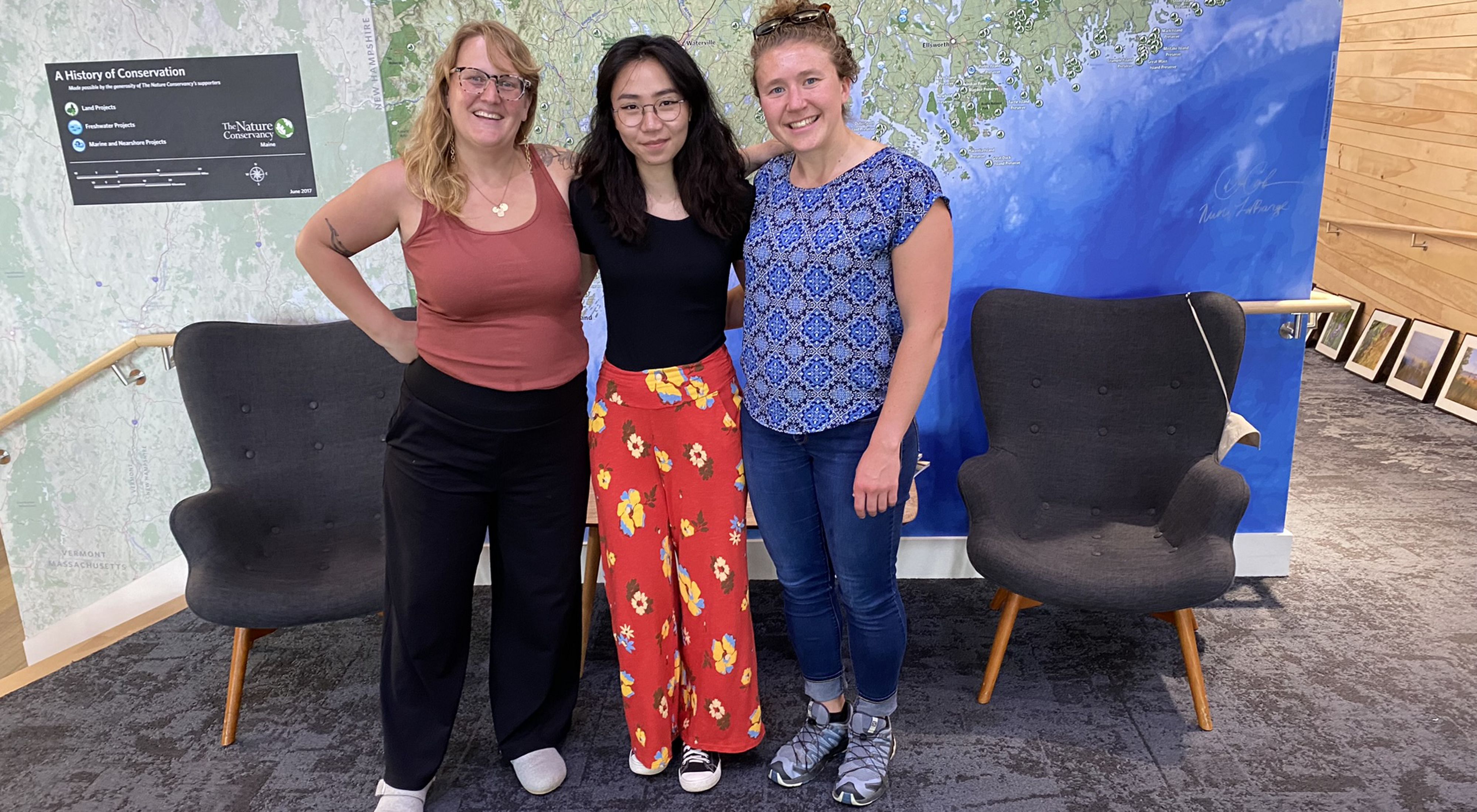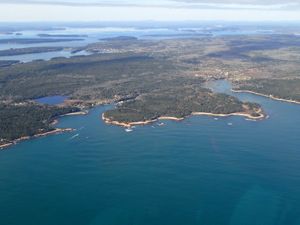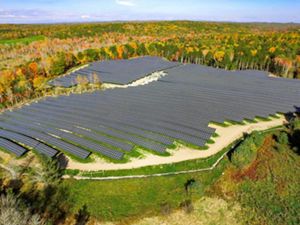A Unique Fellowship Exemplifies Maine’s Global Impact
A Mongolian forestry specialist learns about carbon programs from experts at The Nature Conservancy.
By Tim Paul
When I arranged to sit down with Maralgoo (Marla) Ganbat for a discussion about her fellowship with The Nature Conservancy I really didn’t know what to expect. A Mongolian forestry specialist, Marla has an impressive record of supporting the forestry sector in her country through various roles in both the public and private sectors. Now she was in the United States on a fellowship opportunity to learn from non-profits in this country about climate change mitigation and adaptation strategies, carbon offsets and private sector financing and investment approaches. Heavy-duty stuff!
When we finally met and talked, I was taken by Marla’s openness, easy, friendly manner and eagerness to build her knowledge base. Despite holding a bachelor’s degree in Forestry from the National University of Mongolia, a master’s degree in Forest Economics and Management from Beijing Forestry University and a Postgraduate Diploma in Environmental Management from the Technical University of Dresden, Germany, Marla continues to search for knowledge in every way she can.
“My particular area of interest is expanding my expertise on the development and management of forest carbon offsetting projects,” she said. “As well as facilitating the involvement of large-scale private financing in this initiative.”

Marla explained that Mongolia's forests are biodiversity hotspots, harboring a wide array of plant and animal species, serving as habitats for numerous endemic and endangered species, contributing to the overall richness and diversity of Mongolia's natural heritage. Furthermore, the current Mongolian President is directing more focus on environmental issues and the initiatives increased attention to the environment reflects the growing awareness of the importance of sustainable practices in the face of climate change. Marla also highlighted the formation of public-private partnerships as a crucial step towards ensuring the effective management and conservation of Mongolia’s forests amidst rapid development.
Within this context, science-based forest carbon offsetting emerges as a critical component in Mongolia's climate change mitigation and adaptation efforts. “Forest carbon offset projects can play a significant role in reducing greenhouse gas emissions. However, it is essential to approach these projects with robust scientific methodologies and accurate measurements to ensure their effectiveness and integrity” she said.
The four-week fellowship was funded through a U.S. State Department program administered for China and Mongolia by the National Committee on U.S. China Relations. And since she chose TNC for her fellowship, as she said: “to learn from the best,” Marla was connected with Peter Ellis, TNC’s Director of Global Natural Climate Solutions Science located at TNC’s Portland, Maine office and Mark Berry, TNC Maine’s Forest Program Director.
“I learned a great deal from them,” she said. “Especially that carbon offset projects are very complex and require a lot of good science to work right. If the methodology is flawed, the measurements will be inaccurate, and that detracts from the integrity of a project.”
As we wrapped up our discussion, I asked Marla what stood out most to her during the fellowship? Her answer was no surprise to Mainers:
“Everyone was so friendly and helpful,” she reflected. “A huge thank you to Peter and Mark! They were incredibly welcoming, thoughtful, and knowledgeable and made this experience very productive. Everyone here was wonderful and like a family to me now. It makes me want to move here!”
In addition to spending three weeks in Maine, Marla started her fellowship by attending a TNC conference in Asheville, North Carolina. “The conference helped her make connections with professionals from across TNC,” noted Berry. “After this brief visit, I think we’re all looking forward to seeing Marla’s future work and success in the field of conservation.”




